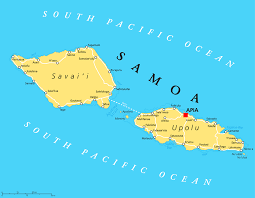By Dr Leon ZHONG, China Medical Team in NRH of Solomon Islands
GREETINGS from Dr. Leon Zhong, a urologist from the third China medical team stationed in the Solomon Islands. With a decade of clinical experience in urological surgery, specializing in minimally invasive procedures and standardized management of urinary disorders, I am here to shed light on the formation and prevention of kidney stones.
Imagine a microscopic gathering in your kidneys, but this is no ordinary event. The attendees, better known as kidney stones, are unwelcome intruders. The formation of kidney stones involves a complex chemical process, primarily triggered by an excess of certain substances—such as calcium, oxalate, and uric acid—in the urine, leading to the formation of insoluble crystals.
1. Types and Composition of Kidney Stones:
Much like the diverse rocks found on Earth, kidney stones come in various compositions. Some consist of calcium and oxalate, termed calcium oxalate stones; others are primarily composed of uric acid, known as uric acid stones. Additionally, there are phosphate stones and more, each with distinct causes and treatment modalities. Factors contributing to kidney stone formation include genetic predisposition, dietary habits, dehydration, and certain health conditions.
2. Symptoms and Diagnosis of Kidney Stones:
As kidney stones traverse the urinary system, the journey can range from silent to excruciatingly painful. Small stones may pass unnoticed, while larger ones can cause significant discomfort and pain, often manifesting as intense sensations in the back, side, or lower abdomen, accompanied by nausea and vomiting. Even when pain is minimal, obstruction of urine flow can lead to complications such as hydronephrosis or kidney dysfunction.
3. Treatment Modalities and Strategies:
Various treatment options exist for kidney stones. Small stones may naturally pass with increased fluid intake and pain management. Larger stones may necessitate surgical intervention, such as lithotripsy via ureteroscopy or laparoscopy, procedures routinely performed in national referral hospitals. These minimally invasive surgeries ensure swift recovery for patients.
4. Prevention is Key:
Lifestyle adjustments play a pivotal role in kidney stone prevention. Adequate hydration, with a daily intake exceeding 2500ml, is essential. Additionally, limiting the consumption of salty, high-protein, or oxalate-rich foods, coupled with regular exercise and maintaining a healthy weight, can significantly reduce the risk of kidney stone formation.
In conclusion, while kidney stones may pose a daunting challenge, adopting a healthy lifestyle and seeking appropriate medical interventions can effectively mitigate their impact. Let us take proactive steps to eliminate kidney stones as a hindrance to our well-being.
(Translated by HUANG BAILIN, International Office, Guizhou Medical University)












